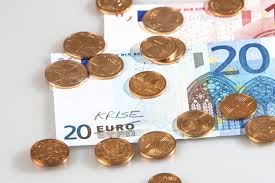By Holly Ellyatt, CNBC
Everybody knows that the Greek government’s coffers are almost empty, but over the last few weeks it’s managed to pay bills worth hundreds of millions of euros.
Earlier this week, the country scraped together enough cash to pay its latest loan repayment to the International Monetary Fund (IMF), but it soon became clear that it did so in an unconventional way.
Here, we take a look at the desperate measures Greece is resorting to pay its bills.
Robbing Peter…to pay Peter?
All eyes were on Greece at the start of the week, as speculation mounted that the debt-stricken country would not be able to meet a 750-million-euro loan repayment to the IMF due Tuesday.
A default on its loan repayments – due following its two international bailout programs, worth a combined 240 billion euros ($270 billion) — could spark financial chaos in Greece, and even result in the country having to leave the euro zone.
In fact, Greece made the IMF payment a day earlier than expected.
What surprised analysts, however, was how it paid the bill – Greece emptied an IMF holding account to repay the loan, a Greek central bank official confirmed to CNBC Wednesday.
Athens is thought to raided its account for 650 million euros, and used 100 million euros from its cash reserves to make the payment.
These special IMF accounts contain something called SDR (Special Drawing Rights) – a reserve currency created and maintained by the IMF. The fund allocates a certain amount of these assets to each of its member countries.
In sum, Greece tapped its IMF reserves to pay back…the IMF.
Commandeering cash
Although speculation as to how long Greece can remain afloat has been rife for months, no one seems sure exactly how much money the country has left.
The dire situation was thrown into sharp relief in April when the government controversially ordered all local municipalities in the country to transfer their idle cash reserves to the Greek central bank.
Greece hopes to get 2.5 billion euros from state entities’ cash reserves to cover its payment needs until the end of May, Reuters reported at the weekend. It has so far scraped together just over 600 million euros, a Greek government official, who declined to be named, confirmed to CNBC Wednesday.
As well as mounting payments to the IMF (Greece has to pay 1.5 billion euros in June) and interest payments on bonds held by the European Central Bank (ECB), Greece also has to pay its own public sector wages and pensions bill each month, which reportedly totaled 2 billion euros in April.
On Thursday, Greece’s Finance Minister Yanis Varoufakis was reported by Reuters as saying Greece’s payment of debt to the ECB over July and August should be pushed back.
The pressures of such payments mean that a last tranche of a final tranche of bailout aid, worth 7.2 billion euros, is even more crucial for Greece to avoid default, although whether it can do so in the long term remains of concern to economists.
7.2 is a magic number
Greek finance officials met with their euro zone counterparts earlier this week to discuss the reforms Greece is required to implement before it receives the last tranche of aid. Progress is slow, however, and sticking points remain over cuts to Greece’s pension system and labor market.
Following the talks, Varoufakis said the liquidity situation in his country was “terribly urgent” and that Greece could run out of money within two weeks.

Another Greek government official, who also declined to be named due to the sensitive nature of reform talks, told CNBC Wednesday that Greece could not “go on with this uncertainty much longer.”
“The finance minister said that liquidity constraints were going to be binding after two weeks – as in, by the end of the month – but we cannot be more specific than that,” the source told CNBC. “Today we auctioned 1.2 billion euros in treasury bills so I think next month’s IMF payments will be covered but certainly, we cannot go on with this uncertainty (over bailout aid) much longer.”
Despite the official’s optimism, Greece has rolled over its maturing treasury bills twice over the last month, meaning that it has postponed paying the holders of its debt.
Analysts are also concerned about Greece’s ability to pay its bills.
“Greece may have made its latest repayment to the IMF, but that doesn’t appear to have eased any concerns about its ability to scrape together funds for future payments, or agree a deal with creditors that would unlock 7.2 euro billion in bailout funds,” Craig Erlam, senior market analyst at foreign exchange company OANDA, said in a note Wednesday.
“While we keep hearing about progress, the two parties still appear far apart of certain reforms on labour market and pensions and both seem unwilling to budge. Unless Greece backs down, I don’t see how a deal can be done,” he added.



















